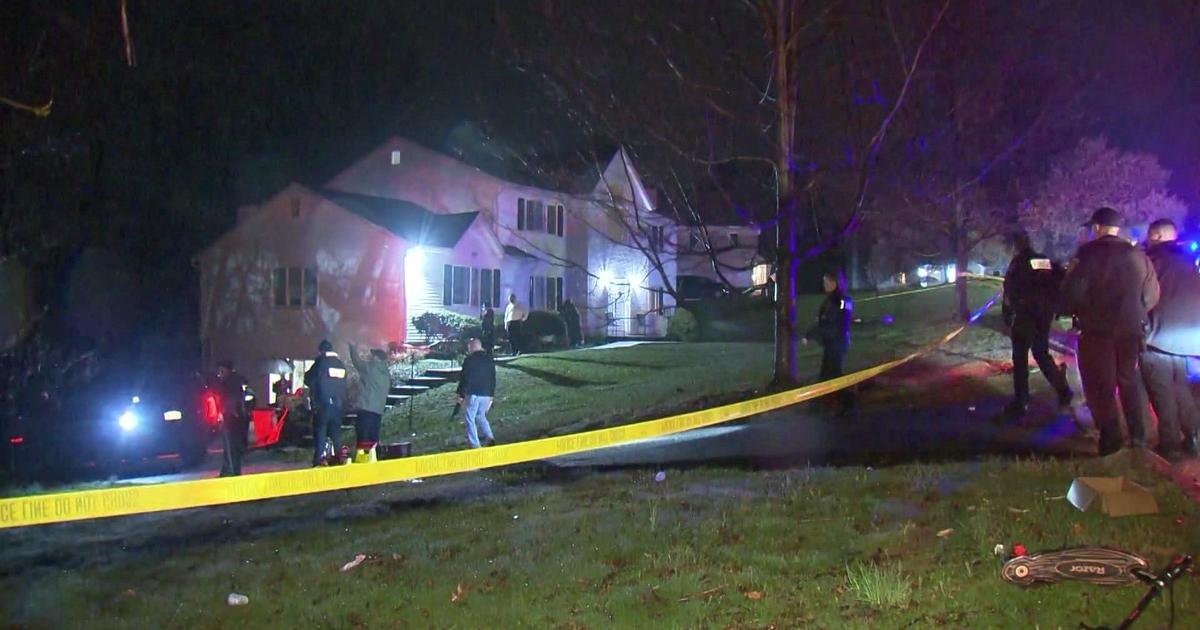Komen Loses Some Supporters Over Planned Parenthood Controversy
NEW YORK (AP) -- When Dorothy Twinney first saw a Race for the Cure walk for breast cancer -- "a sea of pink" traveling through her hometown of Plymouth, Mich. -- she was so moved she sat in her car and wept.
This week, after watching The Susan G. Komen for the Cure breast cancer charity announce plans to cut funding to Planned Parenthood, then abandon those plans amid a public furor, Twinney decided she was done with the organization for which she raised thousands of dollars on three-day, 60-mile walks that left her feet bloodied and blistered, but her spirits high.
"It just feels like it's all tarnished now," the 41-year-old mother of two said. "Honestly, I'm not sure what they can do to change that."
At week's end, many longtime Komen supporters were feeling similarly conflicted. Some, depending on where they stood on the hot-button issue of abortion, called it more of a betrayal. Those who supported Komen's grants to Planned Parenthood for breast-cancer screenings called the initial move to cut them politically motivated; those opposed to the grants said the same thing about the reversal.
The outrage clearly stunned Komen, the country's most widely known breast cancer organization. "I think (Komen) has been horrified to be so caught up in this culture war," said Eric Scheidler, executive director of the Chicago-based Pro-Life Action League.
Many women described feeling caught in the middle when The Associated Press first reported on Tuesday that Komen had adopted criteria excluding Planned Parenthood from future breast screening grants because it was the subject of an investigation launched by a Florida congressman at the urging of anti-abortion groups. The grants totaled $680,000 in 2011.
Alyce Lee-Walker was one of them. A longtime Komen supporter, she'd never given money to Planned Parenthood. But when she learned of the funding cut, she immediately went online to donate $188 -- the 88 signifying good luck in Chinese.
She didn't stop there. The small business owner from Pinehurst, N.C., went about removing all the pink-ribbon stickers, a Komen symbol, that she'd affixed to her belongings.
"I took them off my personal car, the business car, off the doors in the office," she said. And that pink chef's knife she bought at Williams-Sonoma, with some of the proceeds going to Komen? "I'm done with that, too," she said.
When she worked on Wall Street, Lee-Walker once prowled the trading floor soliciting donations "from anyone who loved a sister, mother, wife -- or who was a fan of breasts," she quips. She raised $15,000. But now, Komen's reversal as well as its original move left her disgusted, she said: "It's all political."
Many shared that skepticism. "I'm wondering, is this really what they believe now, or is it just all the bad press that made them do it?" asked Mary Gauvin, a 27-year-old mother from Fort Drum, N.Y. "I doubt their motivation a bit."
Gauvin, a supporter in the past of both Planned Parenthood and Komen, said that now, if a friend asked for sponsorship in a Race for the Cure event, she would offer to give money instead to the American Cancer Society.
Also switching allegiance was Suzanne Strempek Shea, a novelist and college writing teacher in Northampton, Mass. "If someone asks me to sponsor them," she said, "I'm going to say, 'I wish you well, but I'm going to give the amount I'd have given you to Rays of Hope," another breast cancer support group.
The issue was particularly painful to Shea, 51. She is a breast cancer survivor who discovered early warning signs at a Planned Parenthood breast screening (the group does screenings and refers some patients for mammograms).
"They found the cysts that led to the diagnosis. I don't think people realize all the good they do," Shea said. Horrified that a crucial women's health issue had become entwined with the abortion debate, she said that despite the reversal, "I'm still angry."
Even angrier about the reversal were anti-abortion advocates who'd applauded Komen's original move.
"We were very happy to see (Komen) discontinue funding to Planned Parenthood," said Tony Lauinger, state chairman for Oklahomans For Life. "For an entity ... that's trying to prevent breast cancer across the world, it's directly counterproductive that the organization would be giving funds to Planned Parenthood, which is the largest provider of abortions in the country."
Scheidler, of the Pro-Life Action League, sent out emails and social media messages Friday aimed at "tens of thousands" of abortion foes, urging them to withhold donations to Komen. Days earlier, when the original decision was reported, he'd urged people to donate to Komen.
Renee Wiesner, a mother of nine who opposes abortion, said she had been encouraged by Komen's original decision.
"I had known about the grants, and that's why I had avoided supporting Komen in the past," said Wiesner, of Aurora, Ill. Now, she said, she will wait for the furor to die down before deciding where to contribute.
She said she suspected the reversal was simply a PR move by Komen: "They need to keep a good public image if they want to be as successful as they've been."
Not everyone was beating up on Komen. "They made a bad call, but they rethought their position," said Katie Ferdinand, 46, of Basking Ridge, N.J. "I'd consider supporting them going forward."
Before the reversal, Ferdinand had gone on Facebook and urged friends to join her in contributing to Planned Parenthood. The organization said it received $3 million between Tuesday evening and Friday afternoon, funds it said would be used to expand its breast health services, which now provide nearly 750,000 breast exams each year.
That made Planned Parenthood supporter Cindy Froggatt happy. "I am grateful to Komen for the unintended consequence of their misguided decision," said Froggatt, of Philadelphia. She especially admired the actions of New York Mayor Michael Bloomberg, who himself made a $250,000 gift.
The controversy was rawest, it seemed, for breast cancer survivors, especially those, like Joyce Miller, who'd donated many hours of time to Komen. After her first breast cancer treatment, Miller spent an hour a day manning Komen's phone lines, for nearly two years.
"I do not forgive them," the 70-year-old Dallas woman said Friday, after the reversal. She said she was also thinking of her daughter, Twinney, the Michigan woman, who spent years on the breast cancer walks. "Those bloody feet," Miller said. "The aching back!"
As for Twinney, she didn't try to hold back the tears as she spoke of the years of fundraising, which included bartending stints to get cash together, and the three-day walks, buoyed by supporters including her two sons, who even agreed to dress in pink.
"Those weekends, on those walks, were some of the most special times of my life, next to the birth of my children," she said. "You met the best people in the world. This organization began for such a special reason. And I am just so disappointed right now."
Please leave a comment below...
(Copyright 2012 by The Associated Press. All Rights Reserved.)



